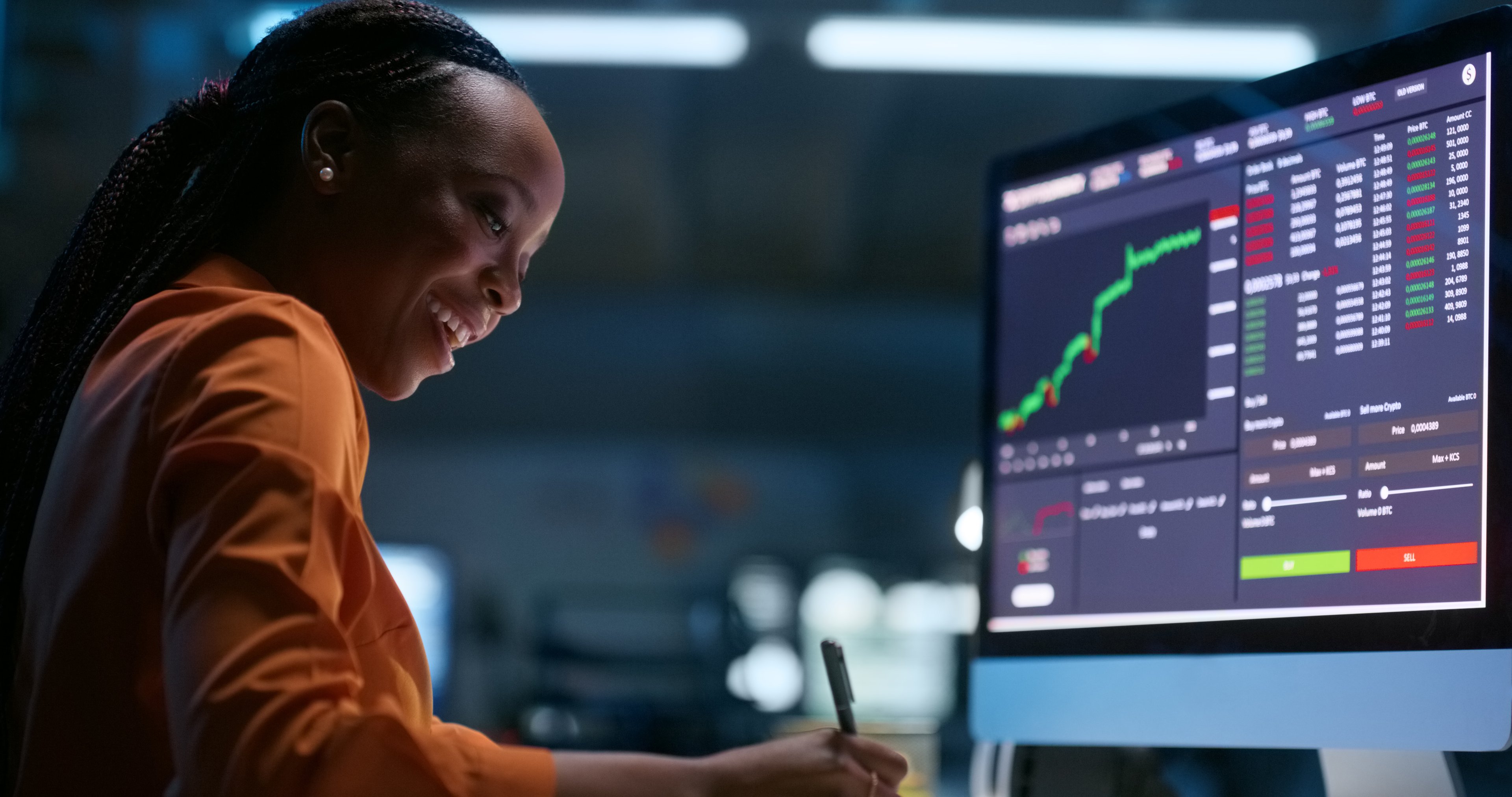Artificial intelligence (AI) is changing the game for many sectors. Cloud computing is no exception. The outsourced data center and computing strategy that has steadily gained market share in the last two decades is now seeing accelerating growth because of AI, which requires an immense amount of compute to train and operate.
One cloud company to watch in the AI space is CoreWeave (CRWV +3.61%). It is an AI-focused cloud provider that just went public in 2025, with revenue growing 420% year over year last quarter.
Could buying this AI stock help set up your portfolio for life?

Image source: Getty Images.
Rapid growth because of AI
CoreWeave began its operations as a cryptocurrency mining operation. However, in 2019, the company pivoted its operations to cloud computing using Nvidia graphic processing units (GPUs). This decision -- either through foresight or luck -- set up CoreWeave to take advantage of the growing computing demand from AI companies.
Buying up tons of the latest Nvidia computer chips, CoreWeave has been able to offer a cloud computing service built specifically to focus on AI. As a start-up, this has allowed it to operate much more nimbly than the big players in the space, such as Amazon Web Services (AWS), leading to contract wins and spending flowing to CoreWeave. It currently has an order backlog of $25.9 billion.
Revenue is growing rapidly. Sales grew 420% year over year last quarter to $980 million, making CoreWeave one of the fastest-growing companies in the world. With such a large backlog to work through, the company looks set to keep growing at a fast rate and eclipse $10 billion in annual revenue in the near future. It is exciting times for the company, which has led to optimism in its stock price. Just a few years ago, this start-up was not worth much at all. Now it has a market cap of $71 billion.

NASDAQ: CRWV
Key Data Points
Will it ever generate a profit?
Fast growth from CoreWeave has not come without a price. The company had a $27.4 million operating loss last quarter. This may not seem like much, but when you look at the company's interest expense on debt and capital expenditures, the picture is more extreme.
In order to finance its data center build-out, CoreWeave has loaded up its balance sheet with $3.77 billion in current debt and close to $5 billion in long-term debt. This debt had $264 million in net interest expense last quarter, or 27% of the company's revenue, and will be a headwind for a long time as the company tries to scale.
Free cash flow is aggressively negative, at a $1.35 billion burn rate just in the first quarter of 2025. That is an annual burn rate of over $5 billion a year. The company needs to scale up spending on its platform quickly to stem this cash burn. With only $2.5 billion in total cash and equivalents on the balance sheet, CoreWeave is going to have to raise money in the near future in order to finance its data center growth plans.
The bottom line about CoreWeave stock
CoreWeave fits the classic definition of a high-growth stock that just went through its initial public offering. Investors are rightfully excited about how fast it is growing, but the company is operating aggressively with huge cash burn that presents a risk to its viability if AI spending slows down or stops.
What should temper your expectations and make you hesitant to buy this stock is the valuation. At a market cap of $71 billion, the company is trading at over 30 times its trailing-12-month revenue. Yes, if revenue keeps growing at 400% a year, this price-to-sales (P/S) ratio will come down quickly. This is not likely to occur forever, however, as the company is already generating billions in annual revenue. Plus, the company will not have sky-high margins because of all the interest expense it has to pay on its debt. It will likely need to raise more money shortly due to its heavy cash burn.
To sum it up, there are a lot of ways for an investment in CoreWeave stock to go wrong. You need rapid growth to continue and a rapid transition to positive cash flow. If this does not happen, the stock will likely perform poorly for investors over the next few years, which is why you should not buy any shares today.





